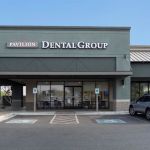Understanding the Ownership of Your Dentist's Office
As someone who has spent quite a bit of time in the dentist's chair, I’ve often wondered, “Who actually owns this place?” I mean, the dentist is the one providing all the care, but is it the dentist who owns the office, or is there someone else behind the scenes? This question got me thinking about the structure of dental practices and how they work, especially when it comes to ownership. In this article, I'll take you through everything I’ve learned about who owns your dentist’s office, how these practices are structured, and why it matters to you as a patient.
pgsql复制1. The Structure of a Dental Practice
Dental practices can be owned in a variety of ways, and understanding these structures is important for knowing who really calls the shots. Some dental offices are individually owned by the dentist themselves, while others are part of larger dental groups or corporations. Let’s take a closer look at the different types of ownership:
1.1. Solo Dental Practices
In a solo dental practice, the dentist who treats you is usually the owner of the practice. This is the traditional model and can often feel like a more personal, community-focused setting. When you visit a solo practice, the dentist typically has full control over the day-to-day operations, from patient care to staffing and office management. The dentist may even hire other specialists to help with things like orthodontics or periodontics, but ultimately, they are in charge.
1.2. Group Practices
In a group dental practice, multiple dentists work together under one roof, but the practice itself may be owned by one or more individuals or a group of investors. This structure can allow for more resources, such as more advanced equipment and additional specialists. Often, group practices are more business-oriented, which means they may have a team of managers or administrators who handle the non-clinical aspects of the office. These practices tend to be larger, and the dentist you see might not be the one who owns the practice.
1.3. Corporate-Owned Practices
In recent years, corporate-owned dental practices have become more common. These practices are owned by large companies or corporations that operate multiple dental offices across a region or even the country. While the individual dentist is still the one treating you, the corporation owns the business side of things, including the office, the employees, and the overall operations. Corporate dental practices often offer a broader range of services, but some patients feel the experience is more impersonal due to the corporate structure.
2. Why Does It Matter Who Owns Your Dentist’s Office?
You might be wondering why it’s so important to know who owns your dentist’s office. Well, the ownership structure can affect everything from the quality of care you receive to the types of services available to you and even the prices you pay. Here's how ownership can influence your dental experience:
2.1. Quality of Care
The quality of care you receive can vary depending on whether your dentist is operating independently or as part of a larger corporate group. Solo dental practices often focus heavily on personalized care and long-term patient relationships. On the other hand, corporate practices may have more streamlined processes and access to the latest technology, but they may also prioritize efficiency over individual patient needs. It’s essential to consider whether the focus is on patient care or maximizing profits.
2.2. Range of Services
In group practices or corporate-owned offices, you’re more likely to have access to a broader range of dental services under one roof. For instance, you might find that a group practice offers both general dentistry and specialized treatments like orthodontics or cosmetic dentistry. In a solo practice, however, you might have to be referred to a specialist outside of the office. Depending on your needs, the type of ownership could impact the range of services available to you.
2.3. Pricing and Insurance
The cost of dental care can also be influenced by who owns the practice. Corporate-owned practices often have fixed pricing and standardized insurance agreements, while solo practitioners may offer more flexibility in terms of pricing. Some solo dentists are more likely to negotiate payment plans or offer discounts to loyal patients. Corporate offices, however, may not have the same level of flexibility, though they might provide lower prices due to the scale of their operations.
3. How Can I Find Out Who Owns My Dentist’s Practice?
If you're curious about who owns your dentist's office, there are a few easy ways to find out. Here’s how I learned the ownership structure of my own dentist's practice:
3.1. Ask the Receptionist or Dentist Directly
The easiest way to find out who owns your dentist’s practice is simply to ask. When you’re at your appointment, ask the receptionist or even your dentist who owns the office. Most of the time, they’ll be happy to tell you. After all, it's your right as a patient to understand the structure of the practice you're visiting.
3.2. Check the Practice Website
Many dental practices have websites that provide information about the owners, the practice’s history, and the team of professionals working there. The ownership information may be listed under the “About Us” section, and some websites even highlight the individual backgrounds of the practice owners. If the office is part of a larger corporation or group, that information should be clearly stated as well.
3.3. Look for Public Records
If you’re unable to get direct information from the office itself, public business records can often reveal who owns a dental practice. In the U.S., dental practices are typically required to register as businesses, and those records are available to the public. Websites like the Secretary of State’s office or business registration sites can often provide ownership details.
4. How Ownership Affects Your Patient Experience
The ownership of your dentist's office can directly impact your overall experience as a patient. Here's how ownership structures can affect various aspects of your visits:
4.1. Personalized Care
If you visit a solo dental practice, you may experience more personalized care. The dentist often has the flexibility to spend more time with each patient and develop a long-term relationship with them. In contrast, corporate-owned practices, with their emphasis on efficiency, might have a higher turnover rate of dentists, making it harder to establish that same personal connection.
4.2. Availability of Appointments
Solo practices may have limited office hours and may not be able to accommodate urgent appointments as quickly as a larger group or corporate practice. Larger practices tend to offer more flexible scheduling and extended office hours, which can be a huge advantage if you have a busy schedule.
4.3. Professionalism and Staffing
Group and corporate-owned dental offices often have larger teams, which can result in faster and more efficient care. However, in solo practices, the dentist is likely to be more hands-on with every aspect of patient care, from routine checkups to more complex treatments. Depending on your preferences, you may feel more comfortable in a larger, more formal setting or in a smaller, more intimate practice.
5. The Future of Dental Practice Ownership
The landscape of dental practice ownership is shifting. Corporate-owned practices have been on the rise, particularly as more dentists seek to focus purely on patient care and not worry about the business side of things. While this trend has made dental care more accessible for some, it has also raised concerns about patient care being overshadowed by profits. As a patient, it’s important to understand the ownership dynamics and how it may affect your care, but ultimately, your dentist is still your primary source of health and well-being.
5.1. Are Solo Practices Becoming Obsolete?
Solo practices aren’t disappearing just yet, but they’re becoming less common as dental school graduates are increasingly attracted to the security and structure offered by group practices or corporate ownership. However, many patients still prefer the personal touch that comes with visiting a solo dental office. As a result, some solo practitioners are finding ways to offer modern amenities while maintaining their personal approach to care.







 La Petite Dent Pediatric Dentistry and Orthodontics4.0 (386 review)
La Petite Dent Pediatric Dentistry and Orthodontics4.0 (386 review) Castle Dental & Orthodontics4.0 (249 review)
Castle Dental & Orthodontics4.0 (249 review) Casey A. Rutkowski DMD, PA5.0 (205 review)
Casey A. Rutkowski DMD, PA5.0 (205 review) Dr. Yuri Grishko, DDS4.0 (30 review)
Dr. Yuri Grishko, DDS4.0 (30 review) Grayslake Orthodontics4.0 (185 review)
Grayslake Orthodontics4.0 (185 review) Pavilion Dental Group4.0 (151 review)
Pavilion Dental Group4.0 (151 review) The Importance of Oral Health Education During Pregnancy for a Healthy Pregnancy
The Importance of Oral Health Education During Pregnancy for a Healthy Pregnancy Best Tips for Brushing Your Teeth Properly for Healthy Gums: Essential Techniques for Oral Health
Best Tips for Brushing Your Teeth Properly for Healthy Gums: Essential Techniques for Oral Health Why Skipping Dental Checkups Can Lead to Bigger Oral Health Problems
Why Skipping Dental Checkups Can Lead to Bigger Oral Health Problems Advantages of Porcelain Dental Restorations
Advantages of Porcelain Dental Restorations How Can Diabetes Cause Tooth and Gum Problems? Preventing and Managing Oral Health Issues
How Can Diabetes Cause Tooth and Gum Problems? Preventing and Managing Oral Health Issues Healthy Habits for Promoting Good Oral Health and Hygiene: Tips for a Healthy Smile
Healthy Habits for Promoting Good Oral Health and Hygiene: Tips for a Healthy Smile